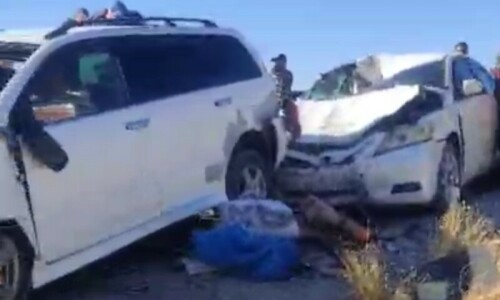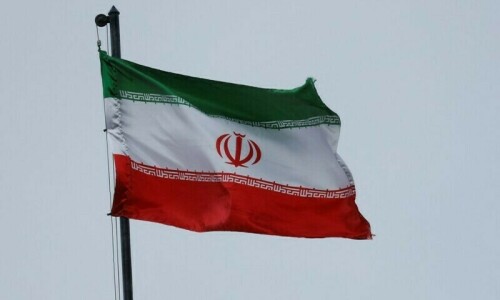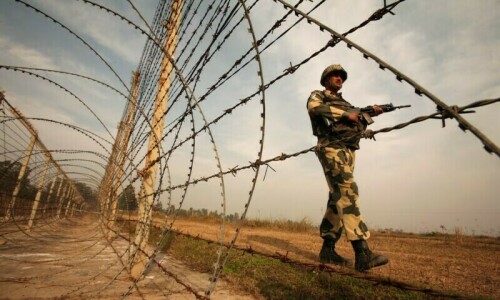ONE of the more ominous developments in the aftermath of Gen Qassem Soleimani’s killing in Baghdad last week has been Iran’s announcement on Sunday that it will no longer abide by the restrictions placed on it by the 2015 nuclear deal.
President Donald Trump had all but sealed the fate of the deal after unilaterally withdrawing the US from the multilateral agreement in 2018. Now, with Tehran’s latest announcement, clearly in reaction to Soleimani’s assassination, the deal is practically dead.
Iran was already not getting any major economic benefits from the historic accord, hailed as a triumph of international diplomacy when it was reached between Iran and the P5+1 — the five permanent UNSC members plus Germany.
The main reason for this was that global firms were afraid to trade with Iran fearing other US sanctions. Sure enough, with the arrival of Mr Trump in the White House in 2017, the future of the Obama-era deal seemed murky, as the incumbent president had promised to withdraw from it in the run-up to the presidential campaign.
Subsequently, America’s exit led to a crippling regime of sanctions that has done major damage to Iran’s economy. Now, as the Washington-Tehran confrontation enters extremely dangerous territory, Iran’s decision to end its commitments may give the Trump administration an excuse to up the ante against the Islamic Republic even more.
In such dangerous times Iran must act with prudence and foresight. There is indeed great anger and sorrow in the country over Gen Soleimani’s assassination. This can be gauged by the massive crowds that have taken to the streets to pay their last respects to the Quds Force commander.
In pictures: Iraqis, Palestinians join Iran in honouring Soleimani, others killed in US air strike
However, Iran’s reaction to the provocation must be mature and keep the interests of its people in mind. In case of a full-blown war, the Islamic Republic will have to face even greater hardships, something it cannot afford with an already enfeebled economy. Tehran has a right to respond and defend itself, but its actions must be proportionate and keep ground realities in mind.
While Iran needs to reconsider its departure from the nuclear deal, the world community must do more to censure Mr Trump’s reckless comments. For example, his brash threat to target “52 Iranian sites [...] important to Iran & the Iranian culture” is beyond the pale. Does the US leader intend to target religious or historical sites in Iran? If this is the case then — as Human Rights Watch and other observers have noted — it may constitute a war crime.
This deeply disturbing notion is a far cry from what Mohammad Khatami, Iran’s former president, once advocated in the form of the ‘dialogue among civilisations’. Instead of dialogue, warmongers in Washington are preparing a casus belli against Iran based on very shaky foundations. Iran must resist this dangerous provocation and act with prudence.
Published in Dawn, January 7th, 2020













































